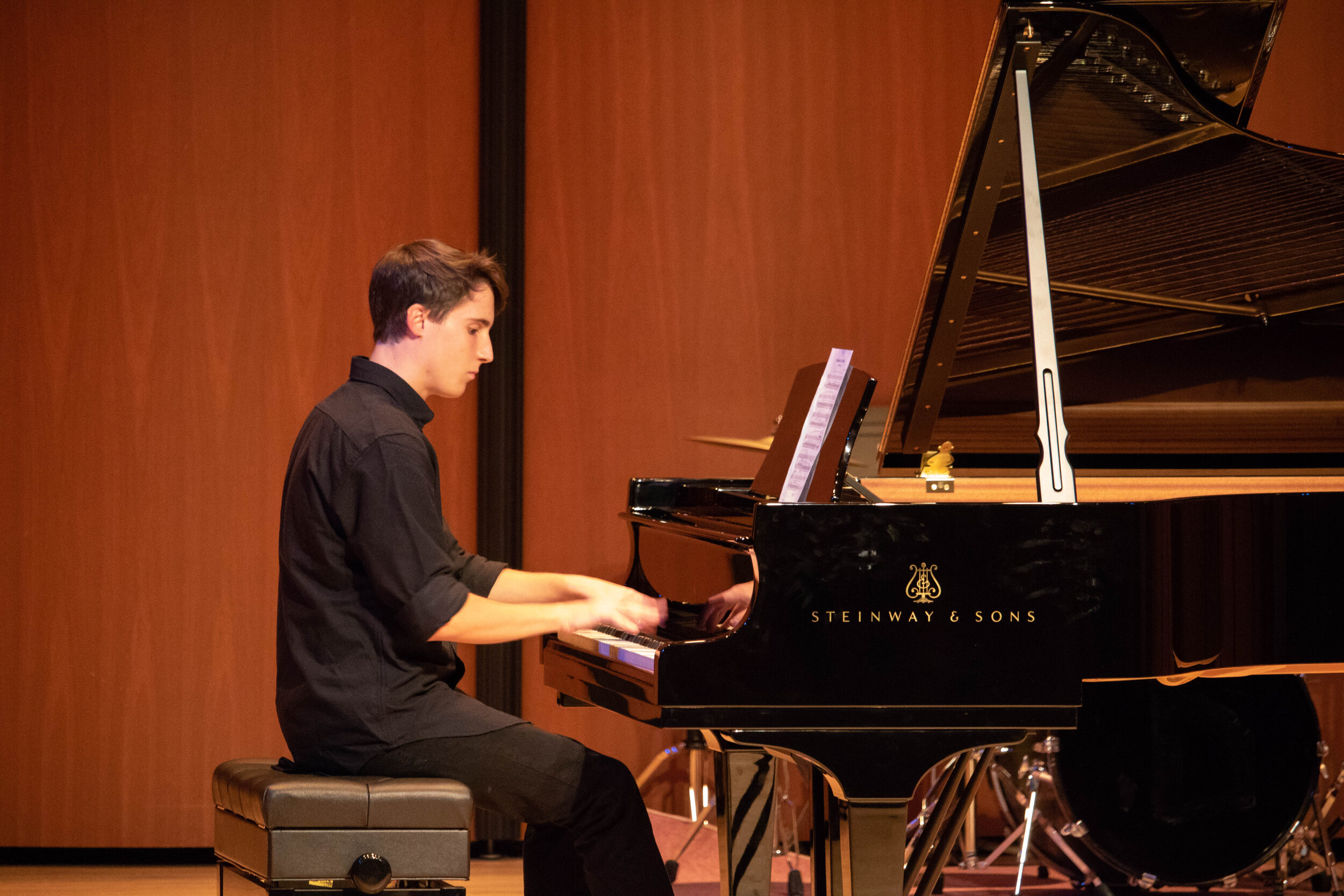Artist Biography
Growing up, there was not any reason for me to become a professional musician, nor any indication that I would pursue it. But, I was fascinated by humor and games. The jazz musician has a unique position of being a humorist. He has the capability to compose and arrange for a variety of sounds and produce his own. With this opportunity comes a natural curiosity; a tendency towards humor and play. My work can reflect this long-standing curiosity of mine. Composing is all about making decisions, but the best part about composing is “playing” with melody, harmony and form in different ways than the traditional. With my work, I hope to create sophisticated music, both technically and emotionally, while providing an environment for humor and play to ensnare those who are curious enough to walk a little closer.
Thesis Abstract
In defining humor as following three different theories: incongruity, superiority, and relief, there are different ways in which musicians can and have used these theories in musical devices within the composition process. This thesis provides an argument as to why there is a place for humor in jazz. Because jazz musicians such as Louis Armstrong, Duke Ellington, and Dizzy Gillespie, to name just a few, have used humor within their stage presence and music regularly, it allows the audience to connect with a style of music that may be intellectually challenging to understand. Jazz can simultaneously draw from elements of humor and be serious, sophisticated music all the same. In my compositions, I draw on influences such as Thelonious Monk, Oscar Peterson, and Clark Terry, as well as those musicians previously mentioned. I employ humor in the form of drifting tonalities, implausible delays, excessive repetitions, and incongruous or dissonant sounds. Audiences may perceive humor differently than what is intended, and there is no guarantee for an audience’s reception. However, the intention for this thesis is to provide music made with humorous compositional devices.


